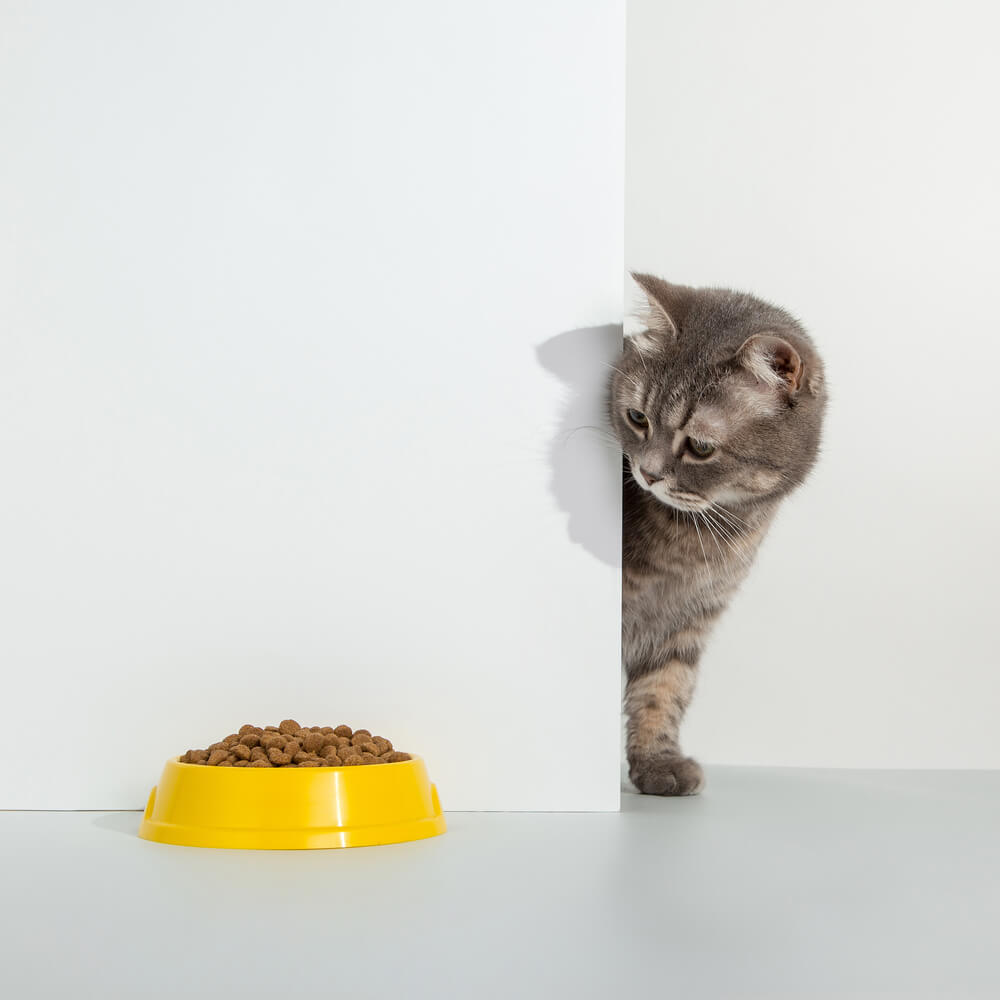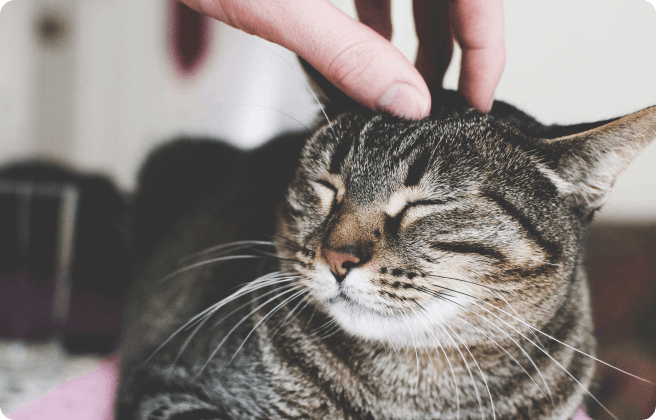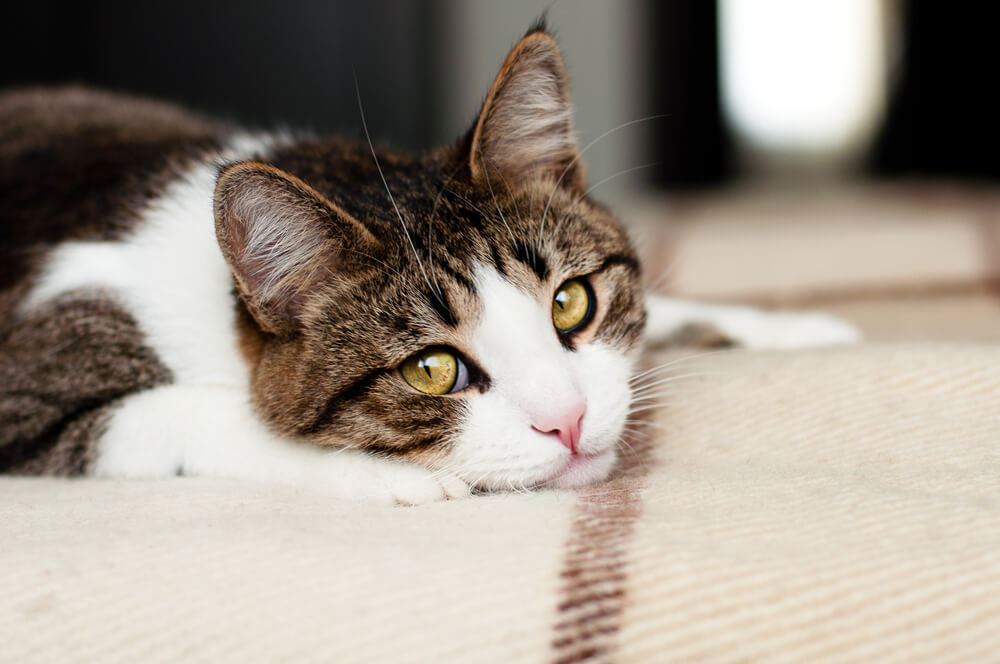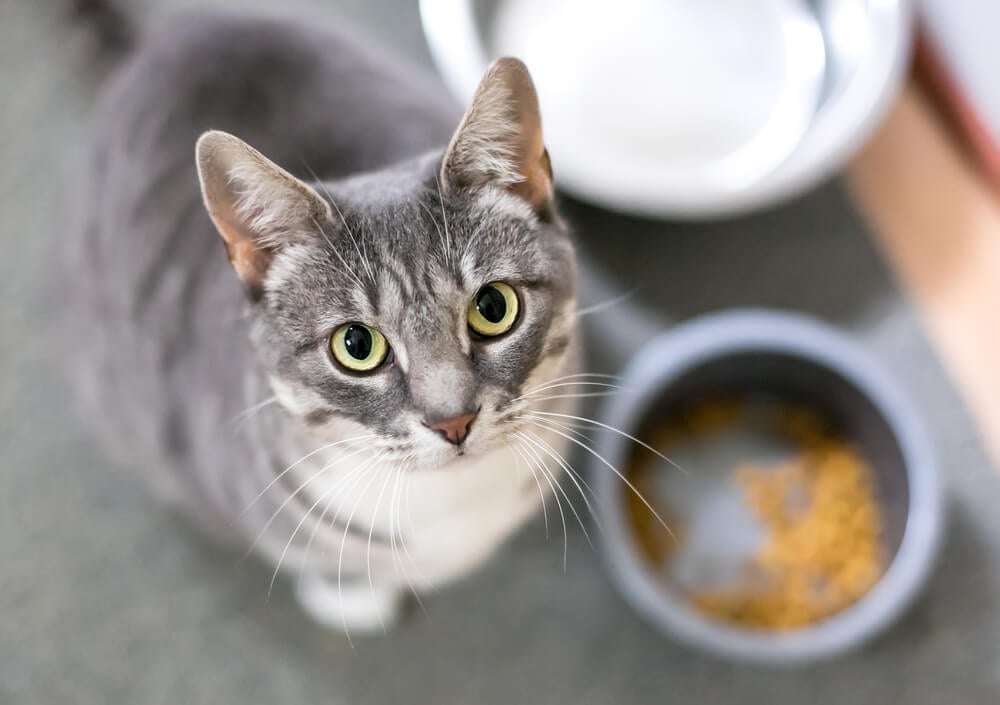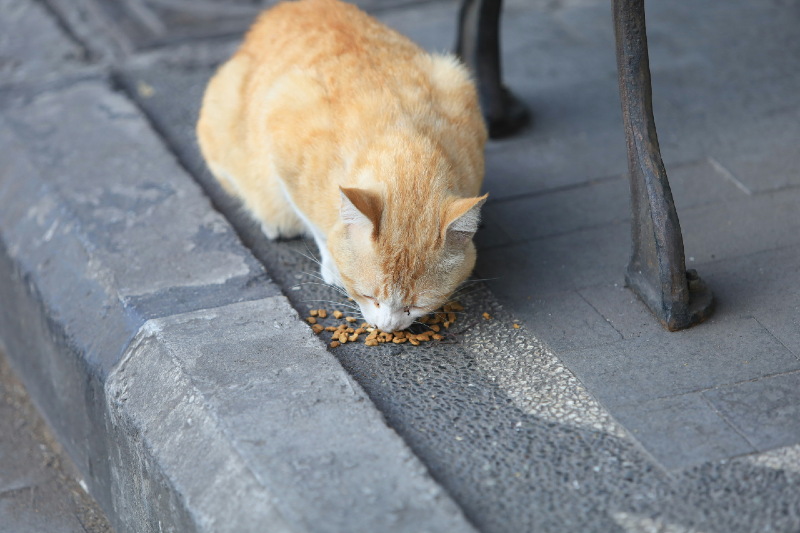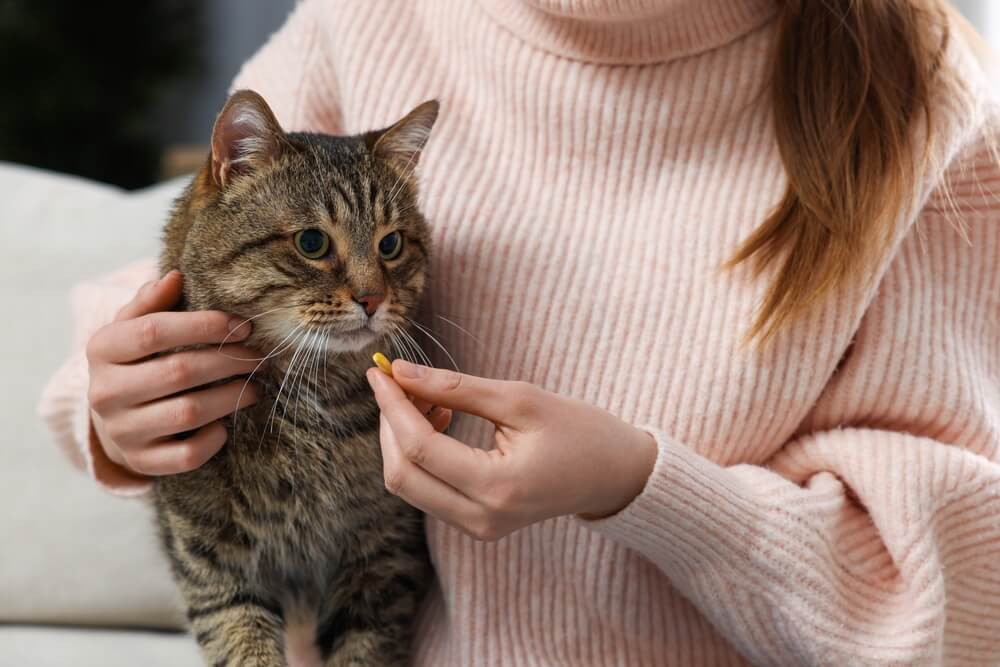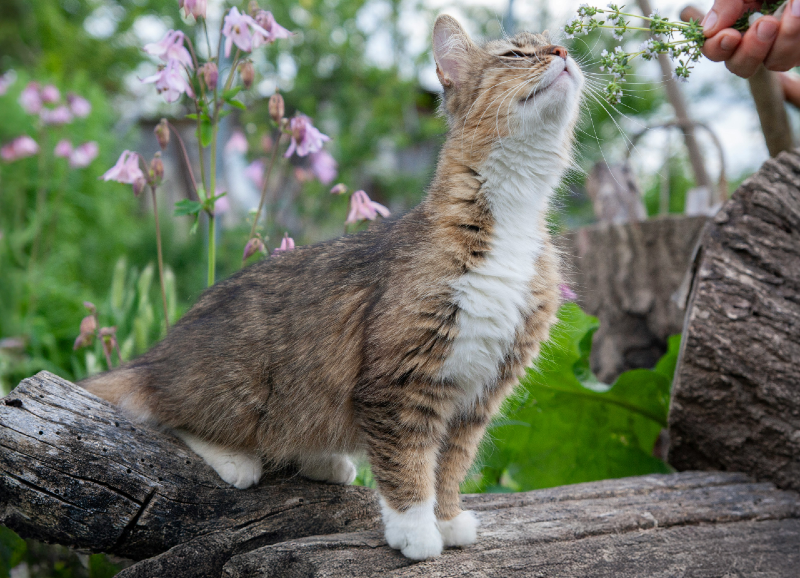
Cats love a good sniff. After all, it’s one of their most powerful senses, and scent is one of the primary ways they experience, explore and navigate the world around them.
Cats possess 40 times more odor-sensitive cells than humans, so their ability to assess their surroundings and make sense of what’s going on is driven largely by their powerful sense of smell, which is thought to be 10-16 times more powerful than humans’ sense of smell.
As if that wasn’t enough, cats have a second scent mechanism that many other animals don’t possess. In addition to the regular olfactory receptors in their nose that pick up and decipher scents in the air and surroundings, they have an extra scent detector called the vomeronasal organ (more commonly known as Jacobsen’s organ) on the roof of their mouth. This picks up pheromones rather than regular scents, which helps cats when it comes to social information, mating, and territorial disputes.
With this superpowered double sense of smell comes a celebration of scents they enjoy, but on the flipside, odors they dislike are significantly stronger and more off-putting.
As a cat parent, by avoiding aromas that cats dislike, you can make their environment more welcoming and safe, and encourage your cat into areas you’d like them to be in. On top of that, if you’re attempting to deter other neighborhood cats from being in specific environments such as your garden, you can use certain scents to aid this (as long as they’re safe for cats).
Scents that cats dislike
Peppermint
Peppermint, when eaten by cats, can cause stomach problems. As a result, cats aren’t big fans of minty scents.
Eucalyptus/Menthol
Eucalyptus is another plant that’s toxic to cats, and so they don’t like the smell. It should not be planted as a cat deterrent in gardens due to its toxicity.
Bananas
The smell of this pungent fruit — especially the peel — is something that cats are not fans of. It’s thought this is because of the presence of a chemical compound called isoamyl acetate which becomes stronger the more ripe the fruit is, and can cause GI problems if it’s ingested by cats.
Citrus
Citrus oils can cause problems for a cat’s sensitive olfactory system and irritate their nasal passage. Citrus peel from oranges, lemons, grapefruit or limes can be used in your garden if you’re attempting to keep bullying cats out.
Vinegar
Strong smells such as vinegar, as well as other pungent household cleaning products, are not pleasant for cats to inhale. This means that vinegar (but not other household cleaners) can be used as a cat deterrent as it’s safe and non-toxic.
Coffee
Another food product that can be toxic, so cats will avoid the aroma if you’re brewing your morning cup of Joe. Due to the danger posed to felines, it’s not a good idea to sprinkle ground coffee or beans in your garden to deter cats.
Perfume and aftershave
As fragrances designed for humans contain strong scents, including odors that cats don’t appreciate such as pine, cedar, peppermint, citrus, cinnamon or lavender, it’s advised not to spray them around cats or use strong room fragrances in your home as they’re likely to cause your cat irritation.
Dirty cat litter
Even more of a reason to regularly clean out your cat’s litter box, it’s no big surprise that cats dislike the smell of uncleaned litter, as humans aren’t keen on it either. If the smell’s too overpowering for your cat, it might result in them not using the litter box and finding somewhere else instead.
We uphold the highest editorial standards when creating the authoritative content pet parents rely on and trust.
Every piece of clinical content on the Cat Food Advisor is reviewed by our certified Veterinary Advisory Board, which consists of licensed veterinarians and medically certified specialists.
Our reviews are completely independent; we are not paid by any pet food company to promote their products favorably. We do not accept money, gifts, samples or other incentives in exchange for special consideration. For more information see our Disclaimer & Disclosure page.



